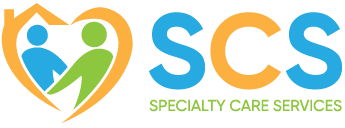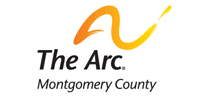Seizure and Epilepsy Home Care
Maryland, Washington, D.C., and Northern Virginia
24/7 Nurse Availability
Free In-Home Assessments
Over 25 Years of Experience
Hours:
Request Call Back
Hero Request Form
Thank you for contacting us.
We will get back to you as soon as possible.
Please try again later.
Quality Care for Patients With Epilepsy
We help children, teens, and adults with frequent or unpredictable seizures live safer, calmer lives with in-home nursing and home care! If you or someone you love lives with epilepsy—and especially if seizures are frequent, severe, or unpredictable—in-home seizure care can make day-to-day life safer, calmer, and more manageable. This page explains:
- Who we serve – and who benefits most
- How our epilepsy home care works
- Why families choose home care vs. clinic/hospital care
- Professionals and Providers we collaborate with or recommend
- What areas we serve
- How to Get Care: Step-by-Step List
Who We Serve
We support children, teens, and adults with epilepsy, from newly diagnosed to drug-resistant epilepsy, as well as the family members who care for them. Many of our epilepsy patients:
- Are treatment & drug-resistant, which is somewhat common: About one-third continue to have seizures despite medications and may need more intensive support and specialty evaluation.
- Are those with frequent/injury-causing seizures
- Commonly experience safety risks, including falling injuries, bathing and showering drowning risk, cooking hazards, choking and aspiration risk, and community events.
- Have cognitive or mobility challenges
- Require complex medication plans often benefit the most from seizure-trained caregivers and RN support at home. [1] [2]
You may also experience:
- Nighttime or clustered seizures that increase fall/burn/suffocation risk.
- Recent med changes or rescue-med starts that need hands-on teaching.
- Post-ED or post-hospital recovery requiring observation and education.
- Executive-function or memory challenges causing missed doses and unsafe routines.
- Caregiver burnout, missed work, or gaps in supervision.
If you or a loved one are experiencing these symptoms and risks on a regular basis, our caregivers at Specialty Care Services can help.
How We Provide Care
Our services combine home health nursing and in-home personal care so your home plan matches your neurology plan, and supports healing and improvements at home. These services can include:
1. Companion Care
- Provides social interaction, supervision, and structured activities
- Supports participation in hobbies, games, and community outings
- Helps reduce isolation and increase engagement
- Provides after-school care and support
2. Personal Care
- Assistance with bathing, dressing, grooming, and feeding
- Help with toileting and incontinence care
- Support with mobility and transfers
- Always promoting dignity and comfort
3. Nursing Care
- A registered nurse performs a healthcare assessment to identify needs
- Development of a personalized care plan tailored to the individual
- Medication management, behavioral health support, and health monitoring
- Training for caregivers on medical and behavioral best practices
4. Respite Care
- Short-term relief for family caregivers
- Care provided in the home so loved ones can rest, travel, or attend to other responsibilities
- Flexible scheduling to meet urgent or planned needs
5. 24/7 Care
- Around-the-clock home support for individuals with high or complex care needs
- Overnight monitoring to ensure safety, comfort, and prompt response to needs
- Continuous personal care, companion care, and nursing oversight as required
Local Epilepsy Providers and Professionals We Collaborate With
We coordinate with your neurologist and the region’s NAEC-accredited epilepsy programs (the highest accreditation for comprehensive epilepsy care) to keep home routines aligned with clinic plans:
- Children’s National Hospital (Pediatric). [3]
- GW Hospital / GW Epilepsy Center (Adult). [4] [5]
- MedStar Georgetown University Hospital. [6] [7]
- Inova Epilepsy Center (Adult). [8] [9]
We can work closely with any of the local health facilities that treat patients with epilepsy and seizures. We work closely with external care providers to ensure our care plans are aligned, and that the patient is getting the best care possible.
Why Choose In-Home Care vs. Clinic/Hospital Care?
Adding care at home helps your care and support work where life happens:
- Real-life care and support: Monitoring and coaching during the times and places seizures happen, often at home or after work/school.
- Nighttime support: Providing care while sleeping or late at night, when seizures can be most dangerous.
- Rescue-med confidence: We help implement your Seizure Action Plan at home, promptly jump into action, and track response for your neurologist.
- Medication management & side-effect watch: Regular reminders, medication administration, care logs, and RN follow-ups improve accuracy between visits, as well as providing medical context for your healthcare providers.
- Fewer avoidable hazards: Bathing supervision, kitchen safety, head injury prevention, and environmental adjustments.
- Caregiver relief: Reliable help that reduces burnout; options for overnight seizure care and 24/7 seizure home care when needed.
- Seamless coordination: We share home observations with your care team, including NAEC centers and school nurses, to keep plans aligned.
What Areas We Serve — And Why
We focus on Montgomery County MD, Prince George’s County MD, Howard County MD, Frederick County MD, Washington DC, Fairfax County VA, and Arlington County VA because these areas contain a large amount of children and adults who need epilepsy care and support:
Local diagnosis snapshot
- Montgomery County, MD: an estimated 9,042 adults and 1,440 children have epilepsy or regular seizures. [10] [11]
- Prince George’s County, MD: about 8,315 adults and 1,264 children have epilepsy or regular seizures. [12]
- Howard County, MD: around 2,827 adults and 474 children have epilepsy or regular seizures. [13]
- Frederick County, MD: about 2,522 adults and 420 children have epilepsy or regular seizures. [14]
- Washington, DC: an estimated 6,280 adults and 788 children have epilepsy or regular seizures. [15]
- Fairfax County, VA: about 9,722 adults and 1,548 children have epilepsy or regular seizures. [16]
- Arlington County, VA: about 2,163 adults and 259 children estimated to have epilepsy & [17]
An estimated 47,000 total residents in the DC metro area are living with active epilepsy or frequent seizures.
Studies show that 1/3 of individuals with epilepsy have frequent or severe seizures that affect daily life, [18] meaning that around 15,000 of those with epilepsy may require Specialty Care Services in-home nursing or home care support.
School-to-Home Seizure Action Plan Support (for Children and Teens)
Seizure safety doesn’t stop at the school door. Our caregivers help carry school plans into the home:
- District of Columbia: The Seizure Safe Schools Amendment Act of 2024 (D.C. Law 25-272) requires school seizure action plans, rescue-medication policies, and staff training—your home plan should match what’s in place at school. [19]
- Maryland: Established seizure action plans and training expectations statewide, MSDE’s guidance details how plans should be created and implemented. [20] [21]
- Virginia: “Joey’s Law” mandates school seizure management plans and training in K-12 that we continue to utilize in the home. [22]
To continue the education and care from school to home, we:
- Review the school plan with families
- Reinforce rescue-med steps and VNS magnet cues (if prescribed)
- Log events for neurology
- Coordinate with school nurses so strategies align across settings
What Our Seizure and Epilepsy Home Care Looks Like: Step-By-Step
- Schedule an Assessment: Fill out our forms or give us a call to schedule your free initial consultation
- Registered Nurse Assessment (RN): A comprehensive in-home evaluation: medical history, seizure history and patterns (day vs. night), triggers, current meds and adherence, ADLs/IADLs, fall risks, and home safety.
- Personalized Care Plan: Clear instructions for daily routines, Seizure Action Plan steps, rescue-medication parameters from your neurologist, and who to contact.
- Care Team Match: We introduce seizure-trained caregivers (and RN/LPN if ordered), with schedules that fit your family’s rhythms—including overnight seizure care.
- Start of Care: We begin documenting events, cues, and post-ictal recovery, and we coordinate with your neurology team (and school nurse if applicable).
- Check-ins & Adjustments: Regular RN reviews, med-effect checks, and care-plan tweaks; we share concise updates with your clinic or NAEC center.
- Measure What Matters: We track adherence, event frequency/duration, rescue-med timing, and fall/ED visits—so your neurologist can make faster decisions.
Sources
Epilepsy Foundation.
https://www.epilepsy.com
Accessed August 2025.
Centers for Disease Control and Prevention (CDC) – Epilepsy Data and Statistics.
https://www.cdc.gov/epilepsy/data/index.html
Accessed August 2025.
Children’s National Hospital – Epilepsy Program.
https://childrensnational.org/departments/epilepsy-program
Accessed August 2025.
George Washington University Hospital – Epilepsy Center.
https://www.gwhospital.com/conditions-services/epilepsy-center
Accessed August 2025.
George Washington University Medical Faculty Associates – Epilepsy & Seizures.
https://gwdocs.com/specialties/epilepsy-seizures
Accessed August 2025.
MedStar Georgetown University Hospital – Epilepsy Center.
https://www.medstarhealth.org/locations/epilepsy-center-medstar-georgetown
Accessed August 2025.
MedStar Georgetown University Hospital – Neurology.
https://www.medstarhealth.org/services/neurology
Accessed August 2025.
Inova Health System – Epilepsy Center.
https://www.inova.org/our-services/epilepsy-center
Accessed August 2025.
Inova Health System – Neurology.
https://www.inova.org/our-services/neurology
Accessed August 2025.
CDC – Epilepsy Prevalence Data (Montgomery County, MD).
https://www.cdc.gov/epilepsy/data/index.html
Accessed August 2025.
Epilepsy Foundation – Maryland Epilepsy Facts.
https://www.epilepsy.com/local/maryland
Accessed August 2025.
CDC – Epilepsy Prevalence Data (Prince George’s County, MD).
https://www.cdc.gov/epilepsy/data/index.html
Accessed August 2025.
Epilepsy Foundation – Howard County, MD Epilepsy Facts.
https://www.epilepsy.com/local/maryland
Accessed August 2025.
CDC – Epilepsy Prevalence Data (Frederick County, MD).
https://www.cdc.gov/epilepsy/data/index.html
Accessed August 2025.
CDC – Epilepsy Prevalence Data (Washington, DC).
https://www.cdc.gov/epilepsy/data/index.html
Accessed August 2025.
CDC – Epilepsy Prevalence Data (Fairfax County, VA).
https://www.cdc.gov/epilepsy/data/index.html
Accessed August 2025.
CDC – Epilepsy Prevalence Data (Arlington County, VA).
https://www.cdc.gov/epilepsy/data/index.html
Accessed August 2025.
Brodie MJ, Barry SJE, Bamagous GA, Norrie JD, Kwan P.
Patterns of treatment response in newly diagnosed epilepsy. Neurology. 2012;78(20):1548–1554.
https://doi.org/10.1212/WNL.0b013e3182563b19
Accessed August 2025.
D.C. Law 25-272 – Seizure Safe Schools Amendment Act of 2024.
https://lims.dccouncil.gov/Legislation/B25-0370
Accessed August 2025.
Maryland State Department of Education – Seizure Action Plan Guidance.
https://marylandpublicschools.org/programs/Documents/SeizureManagementGuidance.pdf
Accessed August 2025.
Maryland State Department of Education – Student Health Services: Epilepsy & Seizure Disorders.
https://marylandpublicschools.org/programs/Pages/Student-Services/School-Health/Epilepsy.aspx
Accessed August 2025.
Virginia Department of Education – “Joey’s Law” Seizure Management Guidance.
https://www.doe.virginia.gov/programs-services/student-services/student-health-services/epilepsy
Accessed August 2025.
- Bullet text
- Bullet text
- Bullet text
- Bullet text
- Bullet text
- Bullet text
- Bullet text
- Bullet text
- Bullet text
- Bullet text
Does Medicaid or private insurance cover epilepsy home health nursing vs. private-duty seizure care in DC, Maryland, and Virginia?
Yes – we accept Medicaid, long-term health insurance, and private pay as ways to access our in-home nursing and care services.How fast can you start home care after the registered nurse assessment?
After our nursing assessment, we develop a personalized care plan, and care can begin within 24 hours.Do you offer overnight coverage for those with seizures and epilepsy?
Yes – our overnight nurse and aides coverage is often used by our seizure and epilepsy patients who need safety at night, rescue medication support, reduced risk of nighttime hazards and danger, and help with caregiver relief.Do you set up seizure-alert devices?
Yes – we can recommend effective seizure-alert devices and help caregivers utilize them effectively and reduce potential harm.Can your team support diet therapy at home (meal planning, carb counts, grocery lists) for pediatric or adult epilepsy?
Yes – we provide meal preparation and nursing-based diet advice personalized for each of our patient’s needs.Do you offer bilingual home care?
Yes – we provide providers who speak multiple languages in all of the areas that we serve. Contact us to see if we have a provider near you who speaks your preferred language.

CP #1 Headline
CP #1 Body
CP #1 CTA Lead-in
Not valid with any other offers or promotions. Restrictions apply.
Must mention this coupon at the time of scheduling.
Reviews



